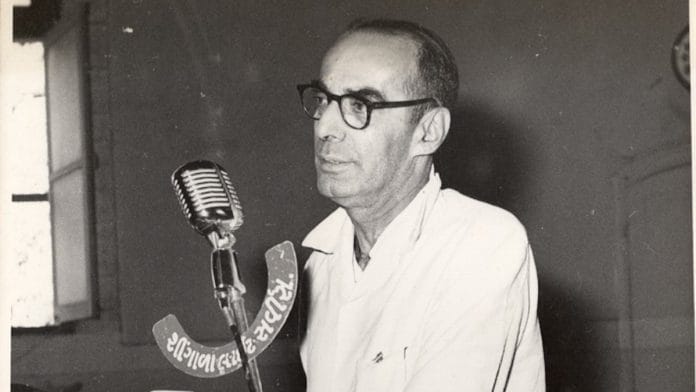Controls are the main bane of our economy. It is said we should stop prices rising by putting on controls. If I may say so, that is flying in the face of the laws of economics. Nothing can stop prices rising if the supply and demand position warrants it. A British economist has said that to try to stop prices by controls is like a lady going to a surgeon to remove her double chin, and the thing comes out at the back of her neck in a bump! In other words, you treat a symptom, you do not treat the disease. The disease of inflation is due to the policies pursued by the Government. Until these are changed, no controls are going to succeed.
Two days ago, I read that the L.K. Jha Committee having failed to stop the rise in prices, the matter will now be referred to a committee at a higher level of Cabinet Ministers, as if the level of the committee decides whether controls would be effective or not! Suppose the Ministers’ committee fails, where are you going any higher? Who is going to form the next committee to stop prices rising if the committee of three Cabinet Ministers fails where Mr Jha and his colleagues have failed?
You cannot defeat the law of supply and demand. Prices, like water, will find their own level, and no amount of juggling will stop the laws of hydrodynamics or the laws of economics from having play. And that is why the team of the World Bank which visited India in February or March this year—let me remind the House that the World Bank is our biggest foreign benefactor today, generous, friendly and helpful—singled out for particular castigation Government’s present policies, which in its opinion make for inefficiency and high costs, and controls which hamper industry at every turn.
Also read:
What is a control? A control is giving an official, even a small one, the power of life and death over a peasant, a shopkeeper or a businessman. Human nature being what it is, is it a matter for surprise that our public life is now riddled with corruption? I am not putting on any cloak of moral superiority. We are all the same under the skin, whatever party we may belong to. But the danger is that, when you combine economic and political power in the same hands, you are creating opportunities for corruption that should not be created.
I would not entrust anybody, including my own party, with the unlimited power that you give to the bureaucracy and politicians to exercise controls. I would recognize that human nature being what it is, there must be checks and balances, a division of power. Why do we have a division of power between the judiciary, executive and the legislature? Similarly, we must have a division of authority, political and economic.
The day on which you give economic power to those with police power, you have surrendered the liberties of the people, and that is what state capitalism as practised by the present Government means.
Also read:
Controls involve bureaucracy. Let me give you a few findings of the studies made by the Organization and Methods Division of the Government itself. Official files in the Union Ministries increase at an annual rate of three lakhs; 21 lakhs of files are awaiting screening and destruction; 22 to 45 per cent of the working space allotted to the staff on an austerity basis is occupied by undisposed files.
In the Central Public Works Department, 18 to 25 months are needed for a proposal to reach the stage of execution. And in that particular Ministry the study cites the case of the Land and Development Office where the allotment of a piece of land involves no less than 370 steps from the beginning till the end. This is the controlled economy.
I was very glad that my friend, the Minister for Steel and Heavy Industries, speaking at a seminar in Delhi on August 6, confessed that we are now over-regulated, and he has stated that our framework of detailed control needs alteration, and the multiplicity of points at which they operate needs to be reduced. I am quoting him now: “It is a painful but inexorable fact that today an industrial manager spends more time getting across or around controls than in the task of management.”
This is a very laudable discovery, however belated it may be, but the removal of controls is not so easy. The Minister for Steel has already found that out in his very laudable desire or attempt, which has so far failed, to decontrol steel. That is because every control breeds a new vested interest. Vested interests on the business and official side creep up which resist the abolition of the control, and it needs a very stout heart and great guts, like the late Mr Kidwai, to scrap the whole lot and go back from control to decontrol as Mahatma Gandhi advised.
This essay is part of a series from the Indian Liberals archive, a project of the Centre for Civil Society. This essay first appeared in the book ‘Congress Misrule and the Swatantra Alternative’, published in November 1966. The original version can be accessed on this link.







Long live Minoo Masani. Death to socialists and communists.
Modern India would have been a prosperous and wealthy nation only if the socialists and Indira Gandhi listened to this visionary.
Minoo Masani will forever be remembered with affection and respect.